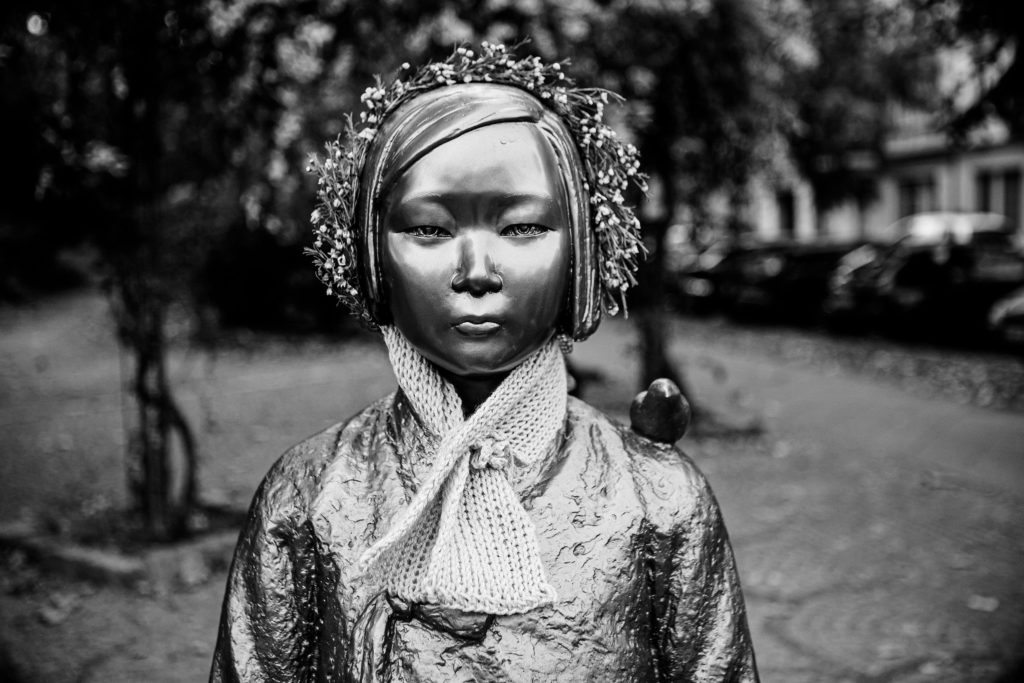The Peninsula
Renewed ROK-Japan Tensions with Court Decision on Comfort Women

What Happened
- After a 7-year trial, the Seoul court ruled on January 8 that the Japanese government must pay reparations to 12 Korean women who were forced to work in Japanese military brothels during WWII.
- The Japanese government claimed the legal case should be dropped based on state immunity, a doctrine that makes states immune to civil suits in foreign countries.
- Japan has not appealed the verdict as such actions would put the government under Korean jurisdiction and thus legitimizing the case.
Implications: Tensions between South Korea and Japan continue to be shaped by forces outside Seoul’s control. Checks and balances restrict the Korean government’s ability to interfere with judicial matters despite Tokyo’s request. The recent ruling comes at a difficult time for President Moon Jae-in as he confronts significant economic and diplomatic headwinds in the final year of his five-year term. On foreign policy, the Moon administration is still addressing bilateral tensions arising from a separate ruling demanding Japanese steel firms to pay reparations to Korean wartime forced-labor victims. Signaling his desire to improve relations, Moon offered to open bilateral dialogue on the court ruling and dispatched a new ambassador to Japan.
Context: Although the South Korean government’s inability to shape ruling on reparations appears to be the problem, the lack of public engagement had made past diplomatic agreements on wartime legacy issues unsustainable. This was the case with the comfort women deal concluded between Prime Minister Shinzo Abe and President Park Geun-hye in 2015. The Korean public felt that victims had not been properly consulted. This sentiment is reflected in statements made by the current administration, which stated that “the real problem cannot be truly resolved only by an agreement between the governments that does not reflect the stances of the victims.”
This briefing comes from Korea View, a weekly newsletter published by the Korea Economic Institute. Korea View aims to cover developments that reveal trends on the Korean Peninsula but receive little attention in the United States. If you would like to sign up, please find the online form here.
Korea View was edited by Yong Kwon with the help of Melissa Cho and Alexandra Langford. Photo from Hossam el-Hamalawy’s photostream on flickr Creative Commons.
